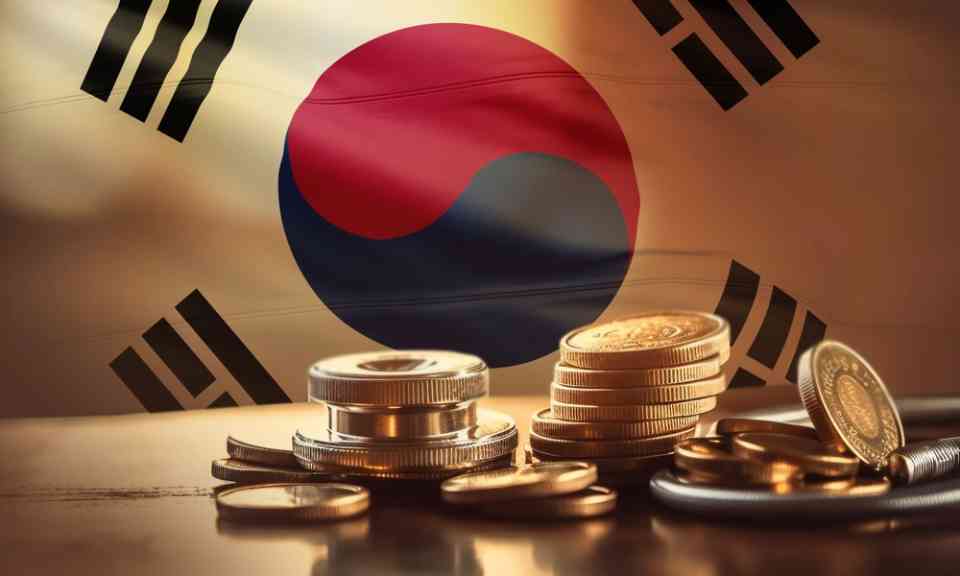South Korea’s Wealthy Families Poised for Inheritance Tax Relief

For decades, South Korea has imposed an inheritance tax of up to 60% on the controlling shareholders of major companies like Samsung Electronics, compelling billionaire families to engage in complex financial maneuvers to meet their tax obligations.
Now, these affluent families may soon see significant relief. President Yoon Suk-yeol plans to reduce the maximum inheritance tax rate from 50% to 40% and eliminate the additional levies imposed on owners, according to an announcement by the Finance Ministry on Thursday, July 25.
The inheritance tax was originally intended to prevent wealthy families that control large conglomerates, known as chaebols, from maintaining their economic dominance through generational wealth transfers. However, the tax has been unpopular among retail investors, who argue that it led to the so-called “Korea discount,” where controlling shareholders kept stock prices low to reduce tax liabilities. If approved by the opposition-controlled parliament, this proposal would mark the first reduction in South Korea’s inheritance tax rate since 1995.
Vikas Pershad, an Asian equities portfolio manager at M&G Investments in Singapore, stated that the immediate beneficiaries would be the controlling shareholders of major conglomerates like Samsung and Hyundai, who would experience a substantial reduction in their inheritance tax burden. Pershad also indicated that the tax cuts could stimulate investment in the stock market, potentially increasing liquidity and boosting valuations for Korean companies.
The tax has had a significant financial impact on many of the country’s wealthiest families. For instance, in 2021, the heirs of former Samsung Electronics chairman Lee Kun-hee, who had an estimated fortune of $20.7 billion at his death in October 2020, faced a tax bill exceeding 12 trillion won (S$11.6 billion). This bill was among the largest ever in South Korea and worldwide. The Lee family announced a plan to pay it in six installments over five years, including a donation of one trillion won for medical facilities and around 23,000 works of art.
To manage the tax burden and retain control, the Lee family significantly increased share-backed borrowing. Such extreme measures might become less necessary with the proposed tax changes.
Douglas Kim, an analyst at Douglas Research Advisory, noted that the move is significant because excessively high inheritance taxes have contributed to poor corporate governance in Korea. Kim believes there is a growing likelihood that the proposal could become law in the fourth quarter despite expected strong opposition in the National Assembly.
Earlier this year, President Yoon suggested that Germany’s tax model might be a suitable example for South Korea. This idea was well-received by business lobby groups but met with criticism from the main opposition Democratic Party. Lee Gae-ho, the party’s top policymaker, expressed his disapproval, accusing the president of catering to the ultra-rich and deceiving ordinary citizens.
Despite the benefits for the wealthy, the government is presenting the reform as part of a broader strategy to stimulate economic growth and attract investment. South Korea’s current maximum inheritance tax rate is the second-highest among OECD members, trailing only Japan’s 55%.
Analyst Douglas Kim pointed out that South Korea’s strong sense of nationalism prevents powerful chaebol families from emigrating, unlike in Sweden, where ultra-high inheritance taxes led to an exodus of billionaires, such as the Ikea founder Ingvar Kamprad. Last year, the family of Kim Jung-ju, the late founder of online game developer Nexon, had to transfer some of its ownership in its parent company, NXC, to pay part of its inheritance tax bill, making the South Korean government the second-largest NXC shareholder.
| GDP (nominal) | Capital | Head of State | Head of Government | GDP (nominal) per capita | GDP (PPP) | GDP (PPP) | GDP (PPP) per capita |
|---|---|---|---|---|---|---|---|
| South Korea | Seoul | Yoon Suk Yeol | Han Duck-soo | 1.709.232 | 33.147 | 3.006.000 | 56.709 |
Have you read?
Best countries for hiring freelancers.
Highest Paid Big Pharma CEOs And Top Executives.
Best Websites For CEOs, business leaders, and high-net-worth individuals.
Best Executive Search Firms And Consultants in America.
Revealed: Most Powerful Women In The World.
Bring the best of the CEOWORLD magazine's global journalism to audiences in the United States and around the world. - Add CEOWORLD magazine to your Google News feed.
Follow CEOWORLD magazine headlines on: Google News, LinkedIn, Twitter, and Facebook.
Copyright 2025 The CEOWORLD magazine. All rights reserved. This material (and any extract from it) must not be copied, redistributed or placed on any website, without CEOWORLD magazine' prior written consent. For media queries, please contact: info@ceoworld.biz








